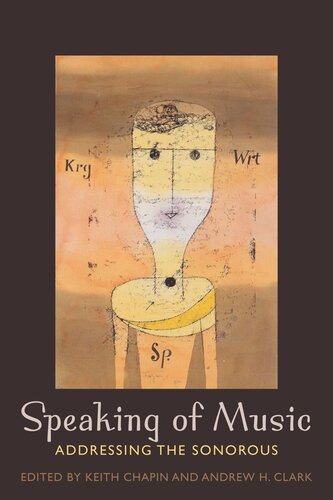

Most ebook files are in PDF format, so you can easily read them using various software such as Foxit Reader or directly on the Google Chrome browser.
Some ebook files are released by publishers in other formats such as .awz, .mobi, .epub, .fb2, etc. You may need to install specific software to read these formats on mobile/PC, such as Calibre.
Please read the tutorial at this link: https://ebookbell.com/faq
We offer FREE conversion to the popular formats you request; however, this may take some time. Therefore, right after payment, please email us, and we will try to provide the service as quickly as possible.
For some exceptional file formats or broken links (if any), please refrain from opening any disputes. Instead, email us first, and we will try to assist within a maximum of 6 hours.
EbookBell Team

5.0
78 reviewsPeople chat about music every day, but they also treat it as a limit, as the boundary of what is sayable. By addressing different perspectives and traditions that form and inform the speaking of music in Western culture—musical, literary, philosophical, semiotic, political—this volume offers a unique snapshot of today’s scholarship on speech about music. The range of considerations and material is wide. Among others, they include the words used to interpret musical works (such as those of Beethoven), the words used to channel musical practices (whether Bach’s, Rousseau’s, or Hispanic political protesters’), and the words used to represent music (whether in a dialogue by Plato, in a story by Balzac, or in an Italian popular song). The contributors consider the ways that music may slide by words, as in the performance of an Akpafu dirge or in Messiaen, and the ways that music may serve as an embodied figure, as in the writings of Diderot or in the sound and body art of Henri Chopin. The book concludes with an essay by Jean-Luc Nancy.